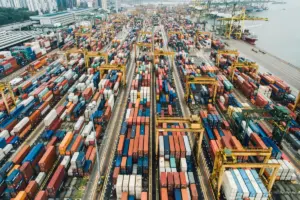Get free access to
Our legislation updates make it easy for you to keep on top of the latest changes affecting your business. Receive our articles, opinions, tips, industry news, country profiles, regional overviews and studies, latest events and even more, directly into your mailbox.
Check out our Newsroom to see what is included!
We will send you only relevant information we consider may be of your interest and treat your personal data in compliance with our Privacy policy and GDPR statement.
Unable to subscribe? Try this page.

Understanding the commercial laws of the jurisdiction in which your business operates is curcial. But for entrepreneurs who are just about to start a business, the choice of where they base their company requires thorough consideration of the legal, tax and cost implications associated with starting and running a business in a specific country.
Romania, with its strategic location and growing economy, presents an attractive case for foreign investors. The capital injection can be made in Romania’s national currency or in freely convertible currency, reflecting the flexible investment environment.
As of 2023, Netherlands, Germany, and Austria are some of the leading investors in Romania in terms of equity inflow, [1] complemented by a noticeable uptick in interest from entities in France, the UK, and the USA. A significant part of this capital has been allocated towards transport and storage industry in Romania. This section includes activities related to the provision of scheduled and non-scheduled passenger and freight transport by rail, pipeline, road, water or air, as well as ancillary activities such as cargo handling, storage, etc., and those provided by terminals and parking facilities. It also includes the hire of transport equipment with driver or operator and postal and courier activities.
However, it’s important for investors to understand that the right to conduct road transportation of goods and/or passengers hinges on more than just forming a company. The type of activities undertaken and the business’ focus require companies to obtain a range of licenses and authorizations. The key requirements essential in the transport and storage industry in Romania and necessary for managing transportation operations along with the eligibility criteria for obtaining a licence, as regulated by Government Ordinance No. 27/2011 on road transport and the Methodological Rules adopted therewith are outlined below.
In order to comply with the requirement to have a real and permanent establishment on the territory of Romania, the company must meet the following conditions:
In order to comply with the good reputation requirement, the company and its transport manager should meet the following conditions:
In order to comply with the financial standing requirement, the company must meet the following conditions:
If the company does not prove that it has capital and financial reserves in accordance with the above conditions, it may prove its financial standing by means of a certificate such as a bank guarantee or insurance, including professional indemnity insurance, issued by one or more banks or other financial institutions, including insurance companies.
In order to comply with the professional competence requirement, the company must meet the following conditions:
It is important to note that a transport manager, a natural person, may manage the transport activities of up to four different undertakings.
Any change in the designated transport manager which may affect compliance with the professional competence requirement shall be notified by the haulier to the competent authority within 15 days from the date of the change.
Summarizing the key aspects related to the licensing and authorization for transport enterprises, we highlight the following critical points encountered during their acquisition:
The details above are only parts of a company incorporation process. Our team of highly experienced professionals is ready to help you to find the best choices for your company or entity, based on your needs, and take your business to the next level.
[1] Foreign equity investment is calculated as the amount of foreign capital subscribed at registration, plus subscriptions through foreign capital increase, plus/minus share capital transferred by / to resident associates/shareholders, minus share capital subscribed to companies struck off the Commercial Register.
